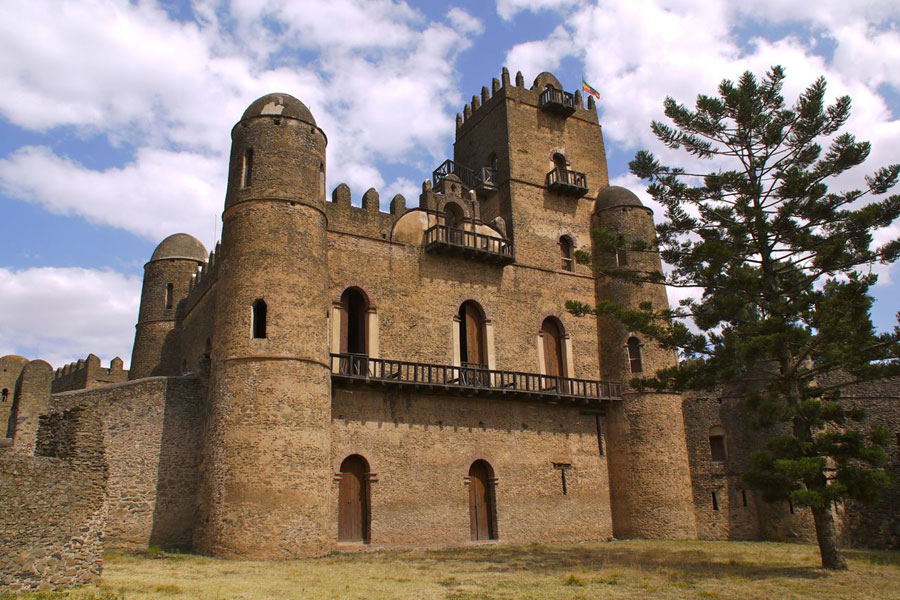
Featured | Sep 08,2024
Usman Hamid, 22, used to spend his days hopping in and out of sports betting shops around the Bethel area. He enjoys soccer games and rarely switches to virtual number raffles.
Although not formally employed, Usman manages to spend what he hustles from informal intermediary services at these betting enterprises. He was able to win about 9,300 Br over the last three years.
He is among the youth who daily flock to the establishments, placing bets from as little as 10 Br to their entire earnings as sports betting proliferates in popularity. But this was before the recent crackdown by the City Administration that closed down all of his favourite spots.
"I'm extremely bored," he said.
Prompted by calls from the urbanites who complained of a pervasive rise in gambling addiction, idle youth and crime around sports betting kiosks, the Addis Abeba Peace & Security Bureau, headed by Lidya Girma, went on a massive door-to-door campaign over the past three weeks, closing over 4,000 outlets.
She told the audience during a meeting at Ras Amba Hotel two weeks ago that these establishments were either operating outside their mandated services or lacking the requisite trade licenses.
While betting companies have been a fixture in the country for over a decade, the last four years have witnessed an unprecedented surge in popularity. It aligns with the expansion of internet coverage and mobile banking, transforming sports betting into a pervasive phenomenon. The National Lottery Administration (NLA), a significant player in this landscape, has been reaping the rewards, earning around 200 million Br every three months from over 112 companies.
Officials have little initiative to see their primary earners shut down. Instead, they seem to be working to prevent any possible loss of revenues by introducing an electronic system to regulate the operation.
Tewodros Neway, communication director of the Administration, said the unlicensed branches fueling the frustration of citizens prompted their decision which is under development by OM IT Consulting & Engineering. He finds the unregulated outlets that are sprouting up across the city the main culprits rather than the nearly tripled companies from last year.
"Lack of control mechanism drove the illegality," he told Fortune.
Tewodros believes automated supervision of companies to the extent of requiring permits to develop software for services coupled with subsequent cross-checking of agents will provide a long-term respite.
A license fee for betting services has shot up over the past decade from 400 Br to a whooping 500,000 Br. However, it has not slowed down the rise in the total number of branches from soaring past 7,000.
Betting companies are required to provide bank guarantees of 1.5 million Br to obtain licenses and give off a portion of their earnings to charity, which amounted to over 3.5 million Br in the last quarter of the fiscal year. Yet, the absence of robust control mechanisms has allowed the proliferation of illegal branches, creating a complex challenge for regulatory authorities.
Vamos Betting averages around 88 million Br in taxes and commissions every quarter. It had 120 of its 164 branches with a monthly rent of 3.5 million Br seized by the campaign of the Peace & Security Bureau.
Yenebilih Bantayehu, the company's CEO, concurs that lack of oversight has fueled the rise in the number of illegal branches and companies that play unlicensed games. He is dismayed that the livelihood of 400 employees under his company has been put at risk with the recent wave of shutdowns. With how things are unfolding lately, he sees little hope of returning to business.
"There is a severe manpower shortage on their part," he said, pointing to the Administration's oversight issues.
The Administration collects 15pc royalty fees from the organisations, boosting revenues for the 60-year-old federal enterprise, which netted close to a billion Birr two years ago.
The impact of the campaign has reverberated across the industry. Over 540 employees at Habesha Betting remain idle with 214 branches closed. The company paid around 69 million Br in commission and fees over the last quarter with over five million Birr on monthly operational expenses.
Manager Mersha Bizualem is in constant shock dealing with "too many uncertainties." While he encourages strict supervision to protect underage children from engaging in addictive practices, Mersha does not consider the abrupt shutdown as providing a lasting solution. He felt a sense of despair at the measures taken by the Bureau, treating all companies like hotspots for crime.
"We're willing to partner and address the issue," he said.
The cascading effects of betting go beyond the immediate financial consequences. Sociologists such as Addisu Guta, head of the Department at Jimma University, observe the broader economic drawbacks where prolonged engagement can reduce working hours that might extend to quitting jobs altogether.
"The profound repercussions of societal disapproval might also lead to self-destructive behaviour," he said.
While the recent rush to close down betting establishments stunned most companies, the regulations have clear stipulations on maintaining a distance of 500m from any schools and religious institutions. The Administration also does not authorise virtual games such as a number-picking game called "Keno", proliferating across the capital.
Getahun Abera, deputy head of the Peace & Security Bureau, said the closure falls perfectly in line with existing laws despite the protests of the companies. He observes that illegal practices are performed under the guise of paying a hefty tax, reasoning that the government is obliged to safeguard social values far past the collection of revenues.
"Paying taxes is not enough," he told Fortune, "Everyone needs to abide by the law."
Getahun revealed that there would be no pullback on the campaign as long as strict adherence to the existing regulations is absent. Some landlords across the capital have received letters from district police stations to stop renting their properties to enterprises deemed hotspots for criminal activity, including betting and pool houses.
Striking the right balance to ensure the industry can evolve into a responsible and regulated source of entertainment and revenue is indicated by legal experts.
According to Tarekegn Abera, an independent lawyer, a door-to-door campaign which lacks parliamentary roots will not realise systemic transformation. He argues that a sector that generates major tax revenues and employs thousands of people should be accompanied by a strong legal and bureaucratic underpinning.
"The Administration can't manage this on its own," said Tarekegn.
He is opposed to shutting down a business sector without precisely identifying the guilty actors. Instead, a strong set of laws drafted with input from all of the relevant stakeholders would be the long-lasting solution to the prevailing issues, according to Tarekegn.
PUBLISHED ON
[ VOL
, NO
]


Exclusive Interviews | Jan 24,2023

Fortune News | Jul 18,2020

Radar | Jan 01,2023

Fortune News | Feb 10,2024

Dec 22 , 2024 . By TIZITA SHEWAFERAW
Charged with transforming colossal state-owned enterprises into modern and competitiv...

Aug 18 , 2024 . By AKSAH ITALO
Although predictable Yonas Zerihun's job in the ride-hailing service is not immune to...

Jul 28 , 2024 . By TIZITA SHEWAFERAW
Unhabitual, perhaps too many, Samuel Gebreyohannes, 38, used to occasionally enjoy a couple of beers at breakfast. However, he recently swit...

Jul 13 , 2024 . By AKSAH ITALO
Investors who rely on tractors, trucks, and field vehicles for commuting, transporting commodities, and f...

Jun 28 , 2025
Meseret Damtie, the assertive auditor general, has never been shy about naming names...

Jun 21 , 2025
A well-worn adage says, “Budget is not destiny, but it is direction.” Examining t...

Jun 14 , 2025
Yet again, the Horn of Africa is bracing for trouble. A region already frayed by wars...

Jun 7 , 2025
Few promises shine brighter in Addis Abeba than the pledge of a roof for every family...